Sustainable development is at the essence of our operations: basic sanitation results in the care of water springs and water resources in general, promoting health and the prosperity of communities. The Group reaffirms this commitment each year by advancing its environmental, social and governance journey.
The Sustainability Policy guides its actions and is an opportunity to demonstrate the commitment to the topic before internal and external audiences. The main fronts the Company is advancing are governance and compliance, diversity and inclusion, environmental strategy, social responsibility, and human rights. Águas do Brasil ESG agenda is a structuring element of the Strategic Planning 2023–2027, and has defined goals related to the four strategic pillars.
Our pillars | Material topics | SDGs |
|---|---|---|
Integrity and transparency | Follow the best governance, business integrity, and transparency practices. | 5. Gender Equality |
Foster universal access to sanitation | Increasingly deliver solutions and development to society through distributing quality water and wastewater collection and treatment. | 3. Good Health and Well-Being |
Efficient water cycle | Accelerate the development agenda through sanitation (water and wastewater) and society’s awareness of the water cycle. | 6. Clean Water and Sanitation |
Water security and climate change | Assess the water security of operations and contribute to mitigating the causes of climate change through best practices and the recovery of water bodies and their biodiversity. | 6. Clean Water and Sanitation |
All of the Groups' companies have a responsibility as sustainable agents in the country. To keep changing people’s lives, we are signatories to the United Nations (UN) Global Compact and have built our environmental, social, and governance (ESG) agenda in line with the Sustainable Development Goals (SDG). In 2022, the Group did several actions that meet the main SDGs, as detailed below.
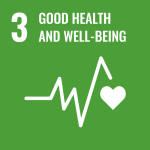
3. Good Health and Well-Being: Ensure healthy living and promote well-being for one and all, at all ages
Universalizing sanitation services in areas where the Águas do Brasil Group operates has been fundamental in reducing deaths and hospitalizations from water-borne diseases.
The city of Petrópolis (RJ), operated by the utility Águas do Imperador, reduced hospitalizations due to water-borne diseases from four (per 10 thousand inhabitants), in 2010, to less than 0.5 cases, in 2021, in addition to zeroing out deaths. In Campos dos Goytacazes (RJ), the utility Águas do Paraíba reduced hospitalizations due to water-borne diseases from 1,187 in 2010 to 78 in 2021, with no deaths recorded. All this evolution in our customers’ health, well-being, and quality of life reflects the continuous work that the Águas do Brasil Group proposes in all its utilities. It is more respect, attention, and dedication to promoting a better life.
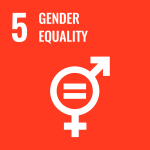
5. Gender Equality: Achieve gender equality and empower all women and girls
In 2022, we implemented our Human Rights Policy, which was widely disclosed in our internal and external communication channels. Additionally, we created and published our Diversity and Inclusion Manual, reinforcing the importance we give to the subject. Our priority theme for 2022 was diversity and inclusion: we conducted a census with more than 95% of the employees, and thus, we can show how diverse we are in terms of gender and race. Concerning leadership positions, it was possible to see where we are on the path toward fulfilling our commitments to value diversity, equality, and inclusion, and we have set targets of at least 30% black and brown-skinned people and 40% women in management positions by 2030.
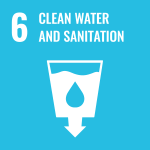
6. Clean Water and Sanitation: Ensure availability and sustainable management of water and sanitation for all
Trata Brasil Institute mentioned Campos dos Goytacazes (RJ) among the three cities in the country that most evolved its wastewater collection system, both in treatment and collection, whose indicator hiked from 54.36% in 2011 to 84.26% in 2020. Before the arrival of the utility, Campos had no wastewater treatment, and the water reached the population intermittently. Niterói, Petrópolis, and Campos dos Goytacazes rank the first three places in the 2022 Trata Brasil Institute ranking for the state of Rio de Janeiro, and in 2023 the Trata Brasil ranking listed Niterói as the fourth-best city in Brazil in terms of sanitation.
On August 1, 2022, we reached a new milestone in our trajectory: Rio+Saneamento started operating, a public utility that serves 18 municipalities in the state of Rio de Janeiro, including 24 neighborhoods in the west zone of the city of Rio de Janeiro, corresponding to 48% of the territory of the city’s capital. Over the next 35 years of the contract, 12 water treatment plants and 33 wastewater treatment plants will be built, in addition to implementing more than 1,500 kilometers of wastewater collection network in the state.
Our Água de Valor Program aims to improve the efficiency of water distribution systems, ensuring that the population’s supply needs are met and that this right is preserved for future generations. From the beginning of the program in 2018 until 2022, it was possible to avoid the loss of 59 million cubic meters of water, enough to supply, for one year, a city with approximately 660,000 inhabitants for one year.
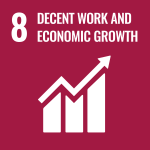
8. Decent Work and Economic Growth: Promote continued, inclusive and sustainable economic growth, full and productive employment, and decent work for all
In 2022, we significantly increased the number of own and third-party employees after undertaking Rio+Saneamento - at the end of the year, the utility already had 1,015 employees. With the Itinerant HR task force, which received and sorted resumes to encourage local hiring, we established a direct channel with the communities through churches and associations, recruiting 126 professionals. In the Rio+Bairros Project, we met with community leaders from the west zone of Rio de Janeiro to establish connections, clarify doubts, and detail our upcoming investments to guarantee a better water distribution.
The Lagunarte Project, carried out by Águas de Juturnaíba, focuses on training and generating income for fishermen’s wives through handcrafted felt products, mainly during the closed season of the local lagoon. More than 30 women from the municipalities of Araruama and Saquarema were trained in 2022, and in 2023, the project will be expanded to the city of Silva Jardim. With a focus on the use of natural fibers from the wetland system of the Wastewater Treatment Plant (WWTP) Ponte dos Leites and sustainable entrepreneurship, the Ecofibras Project incorporates initiatives of social scope, with emphasis on activities in education through the development of pedagogical activities combined with handicrafts and the creative and aesthetic potential. In 2022, 390 people participated in the project, among students, visitors, and people from the surrounding communities.
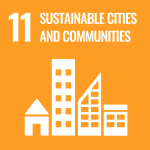
11. Sustainable Cities and Communities: Making cities and human settlements inclusive, safe, resilient, and sustainable
In 2022, our Innovation area created the IdeiÁguas - Nossas Práticas Program, which aims to identify the company’s already existent innovative practices. More than a hundred practices were detected and ranked, considering criteria such as improvement of internal processes or services provided to the customer, risk prevention, and the positive socio-environmental impact generated in the communities, among others.
Also, in 2022, the City Council granted the title of Environmentally Friendly Company to Águas de Pará de Minas due to the city’s basic sanitation indices and the Olhar Ambiental, Trata Óleo, and Águas Eternas programs. The recognition is given annually to people and institutions that stand out in environmental conservation.
In 2022, Águas do Imperador introduced the Araras Water Treatment Station (WTS), which adds 9.5 million liters/day to the system. Its equipment and processes are fully automated and operated by a state-of-the-art Operational Control Center (CCO), with total reuse of processed water and resulting waste.
Ybyrá is a socio-environmental responsibility project that fosters reforestation actions in the watershed of the São João River, place of Juturnaíba Reservoir. The water spring supplies wtare for the Araruama, Saquarema, and Silva Jardim municipalities. The project replaced Revivendo Águas Claras, carried out from 2014 to 2022, which received investments of more than R$1 million, with the maintenance of 16 hectares of native forest around the spring.
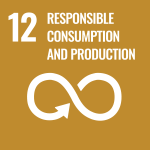
12. Responsible Consumption and Production: Ensure sustainable production and consumption patterns
We offer the population of the municipalities where we operate correct and intelligent means for recycling used cooking oil. In addition to providing Voluntary Delivery Points (Pontos de Entrega Voluntária – PEV) in cities, the Trata Óleo Program caters to different profiles of generators committed to socio-environmental responsibility. The goal is to raise awareness and encourage the population to dispose of used cooking oil correctly, minimize environmental impacts, and collaborate with a broad and effective environmental education. In 2022, the program became corporate, collecting 44,700 liters of cooking oil.
To learn more about the Trata Óleo Program, click here.
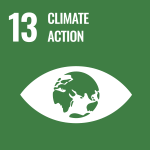
13. Climate Action: Take urgent action to combat climate change and its impacts
Developed in 2022, our Climate Plan combines all our business's critical climate management issues in one document. Through the climate sensitivity assessment, which was based on the Task Force on Climate-Related Financial Disclosures (TCFD) guidelines, we established our context, governance guidelines, strategy, risk management, metrics, and targets. The physical climate risk assessment analyzed regional climate threats and their possible impact on our operations, listing adaptive measures. The plan also suggests work schedules, means of engaging different audiences, and communication principles on climate issues.
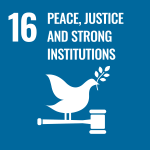
16. Peace, Justice and Strong Institutions: Promote peaceful and inclusive societies for sustainable development, provide access to justice for all, and build effective, accountable and inclusive institutions at all levels
The utility Águas de Niterói stands out in its relationship with the communities. To establish closer links with the population, the concessionaire clarifies' the communities' operational procedures and is available to resolve doubts. In 2022, they held approximately 30 meetings, promoting interaction with 87 communities. The utility also maintains a close and active relationship with around 45 community leaders. It conducts face-to-face visits to the premises of residents’ associations, promoting registration updates, debt negotiations, guidelines for consumption and reduction of water waste, and requesting new connections, among other services related to issues raised by the population.
In addition, at the end of 2022, we joined the Brazilian Business Council for Sustainable Development (Conselho Empresarial Brasileiro para o Desenvolvimento Sustentável – CEBDS), a national non-profit association of companies working to implement sustainable development in Brazil in conjunction with the public authorities and the business sector.
Our Holding was the first company in the country to achieve certification under the ABNT NBR ISO 37002 Standard, which deals with the Whistleblower Management System and attests that our channel is endowed with the highest level of trust and impartiality. Highlighting all the efforts applied in the maintenance of the topics related to ethics and integrity, we also went through the process of recertification of the ABNT NBR ISO 37001 Standard and certification of the ABNT NBR ISO 37301 Standard, which deal with the Anti-bribery Management System and the Compliance Management System, respectively, with certificates issued in February 2023.
Social Environmental Responsibility
The socio-environmental responsibility aspect of our ESG strategy is in line with the principles of the Global Compact and the Sustainable Development Goals (SDGs), of the United Nations (UN), and with premises of diversity, inclusion, human rights, access, and autonomy.
There are three lines of actions:
Education, providing environmental knowledge and training to promote health and well-being.
Territorial development is needed to nurture community spaces that enhance a positive relationship with water.
Social innovation aims to provide innovative ideas and solutions that promote access to quality basic sanitation.
The strategy restructured and enhanced initiatives already promoted at our concessionaries and establishes new actions to be implemented in 2023 by the Águas do Brasil Group.
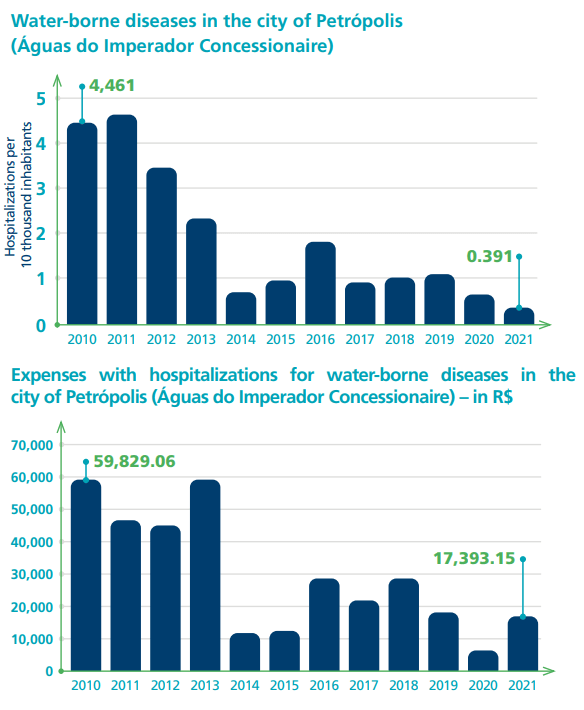
On the way to universalization
Caring for our water means delivering health, well-being, quality of life, environmental quality, and opportunities to the population, leaving a positive legacy for society and the environment. The vast and efficient supply of basic sanitation is one of the main pillars of the Sustainable Development Goals (SDGs) of the United Nations (UN), and it brings several positive impacts to the population.
The city of Petrópolis (RJ), operated by the concessionaire Águas do Imperador, reduced hospitalizations due to water-borne diseases from four (per 10 thousand inhabitants), in 2010, to less than 0.5 cases, in 2021, in addition to zeroing out deaths. In Campos dos Goytacazes (RJ), the concessionaire Águas do Paraíba reduced hospitalizations due to water-borne diseases from 1,187, in 2010, to 78 in 2021, with no deaths registered. All this evolution in our customers’ health, well-being, and quality of life reflects the continuous work that the Águas do Brasil Group proposes in all its concessions. It is more respect, attention, and dedication to promoting a better life.
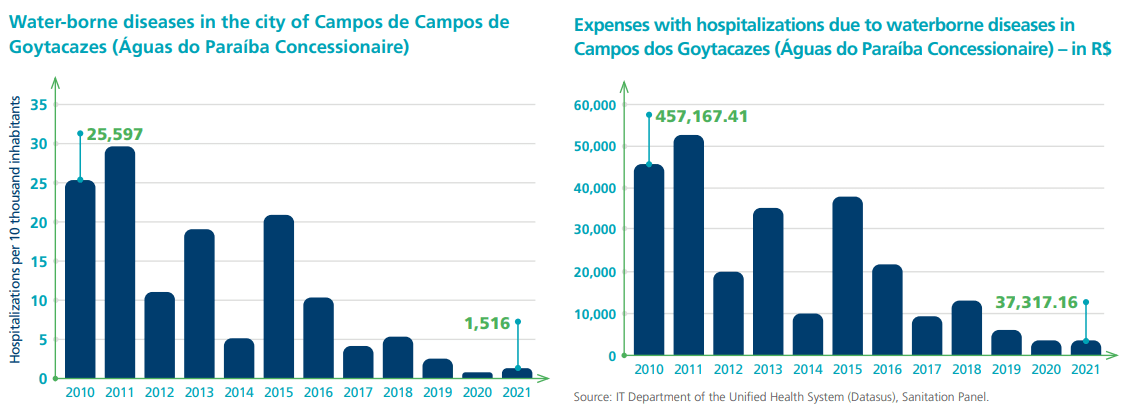
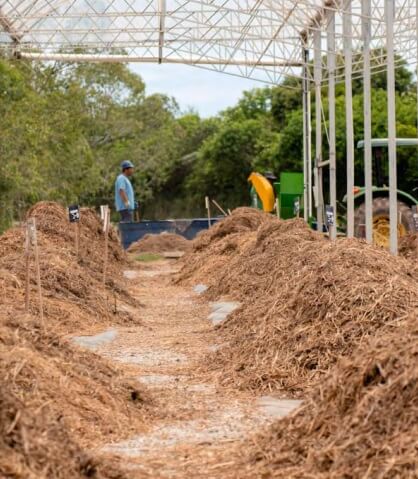
Composting Process in Águas de Juturnaíba
Rio de Janeiro gained one of the country's most sustainable sewage treatment stations. Opened on July 13, 2023, in Araruama (RJ), the STS Ponte dos Leites, from Águas de Juturnaíba, underwent expansion and modernization works, and fully complies with the circular economy's principals.
The investments allowed not only an increase in the nominal treatment flow by 80%, now serving around 144 thousand inhabitants, but also a reuse of 100% of the waste generated in the process.
The STS Ponte dos Leites has a tertiary treatment system that polishes effluents in a Wetland. This system uses plants to remove nitrogen and phosphorus present in sewage, thus reducing the supply of nutrients to the Araruama lagoon. This lagoon has been undergoing an environmental recovery process and will be enhanced by the new sewage treatment system.
The new sewage treatment system has state-of-the-art equipment on 11 hectares, equivalent to 11 soccer fields. Sewage sludge and wetland pruning waste, the station's main waste, are reused to produce biofertilizer and ecological bricks. Part of the pruning will also go to the Ecofibras project, an initiative that promotes training in crafts for teenagers from public schools and people with intellectual and motor disabilities.
Biosolids – a fertilizer rich in organic matter and nutrients, is applied in reforestation projects developed by the company, which has already reforested more than 20 hectares, with the planting of around 35 thousand seedlings of native species, around the Juturnaíba Reservoir
This entire process aligns with the Águas do Brasil Group's ESG strategy of promoting the universalization of sanitation in line with the best environmental, social and governance practices. STS Ponte dos Leites places the State of Rio de Janeiro at a level of excellence in terms of environmental protection and sustainability.
The result of our work can be seen in the environmental, social, and economic aspects of the regions we serve:
Improvement in public health indicators, with a reduction in the number of waterborne diseases;
Provision of basic infrastructure for low-income people, with access to the social tariff, which benefits thousands of families;
Ensuring the development of economic activities related to water resources, such as the tourist sector and fishing villages, resulting from the preservation of biodiversity and water bodies;
Protection of the environment through the reduction of losses in the drinking water distribution systems, which allows for an increase in supply without impact on water abstraction and treatment;
Protection of springs, with riparian forest recovery and reforestation projects;
Reinforcement on the conscious use of water and engagement of communities with socio-environmental actions;
Generation of employment and income, directly and indirectly, for the local community and with the hiring of service providers; and
Development of local suppliers and partners, including recycling cooperatives and other waste recovery initiatives.
Sustainable Finances
Águas do Brasil issued its first green bonds to expanding the basic sanitation network of the Águas de Juturnaíba concessionaire. The green bonds commit to reducing water losses and energy, as required by the best socio-environmental practices.
In 2023, Rio Mais Saneamento issued simple, sustainable and blue debentures, verified by Bureau Veritas Certification Brasil. These debentures are not convertible into shares, issued by CVM Resolution No. 160/22 and Law No. 12,431/11.
